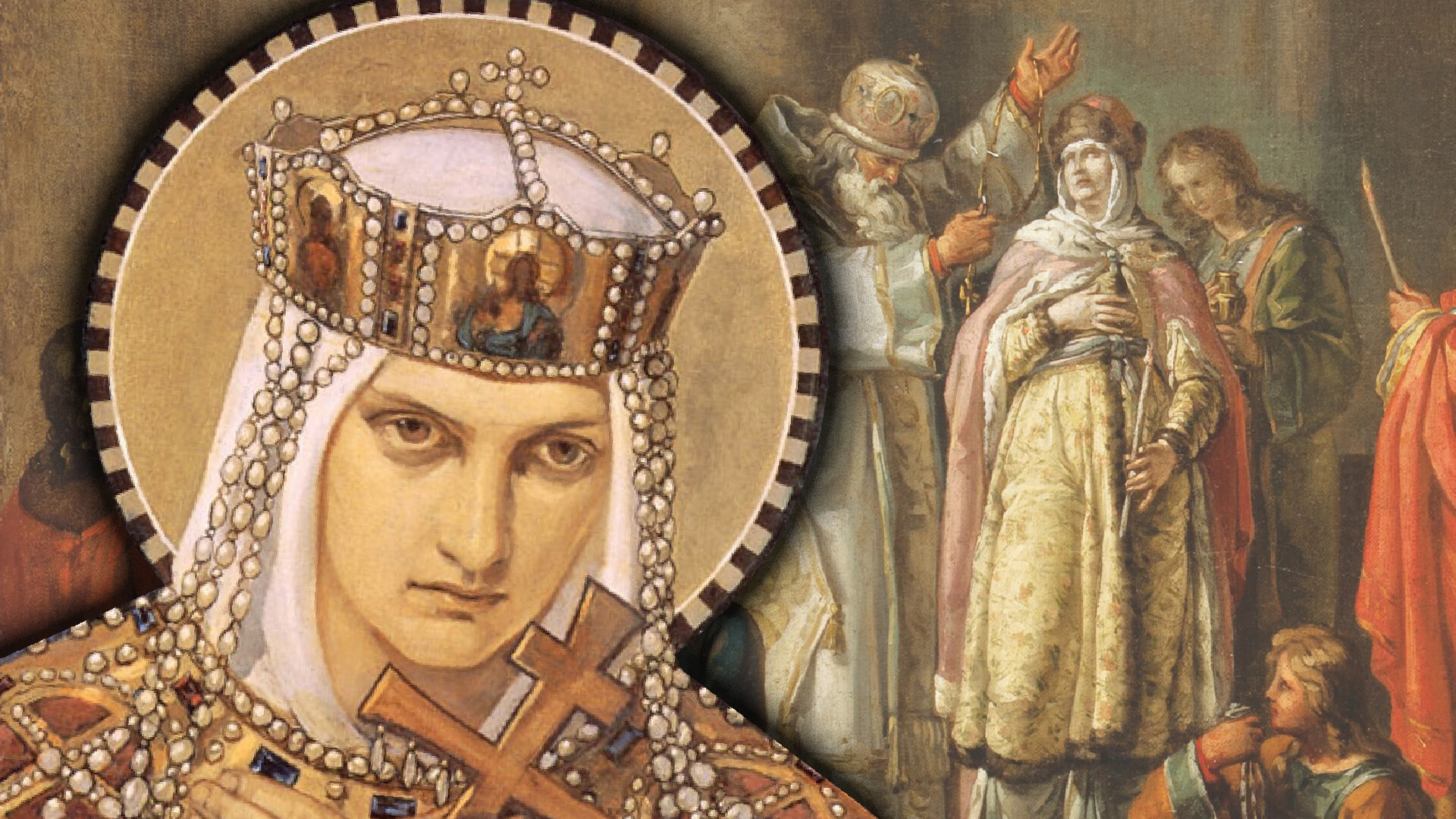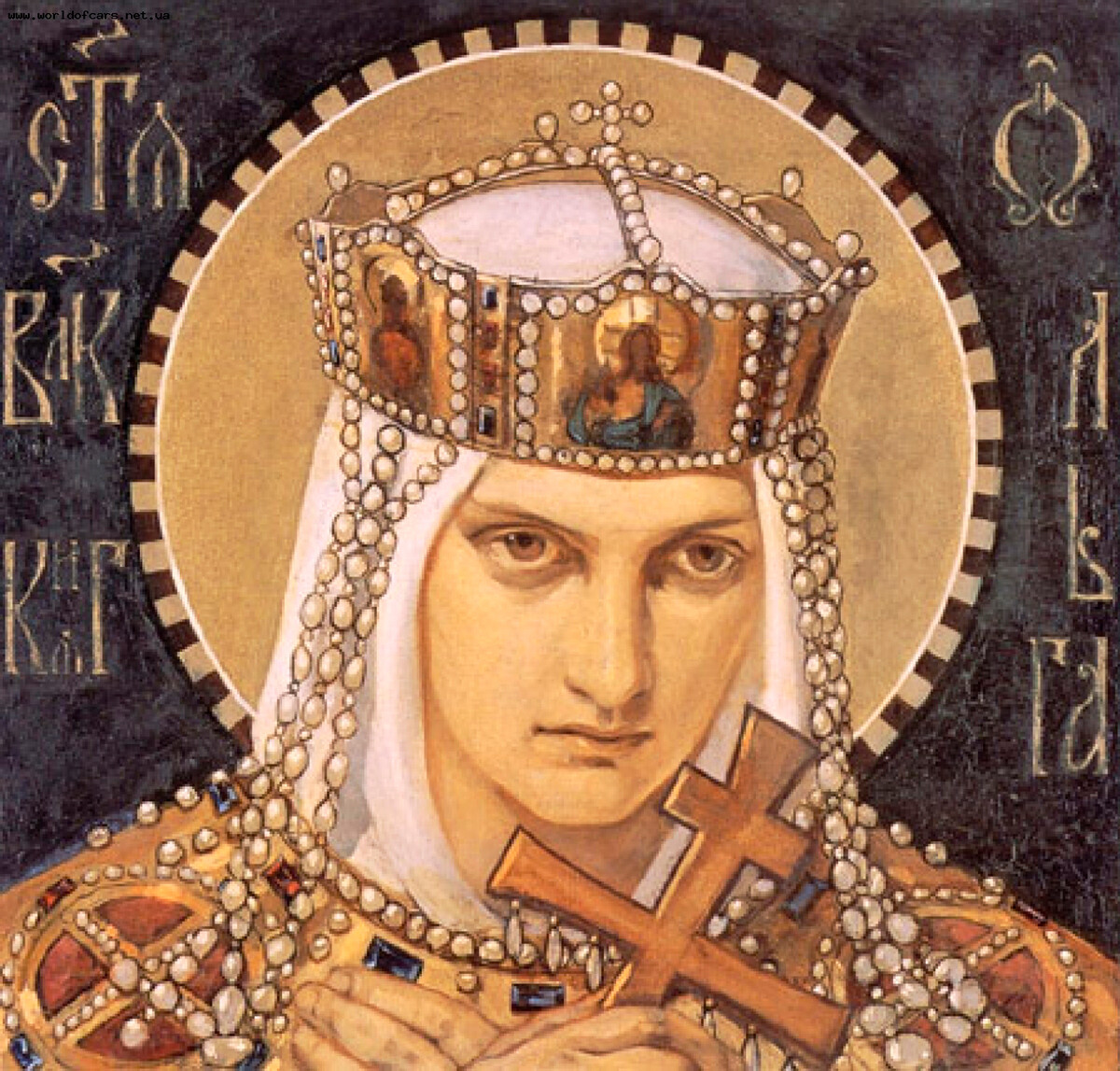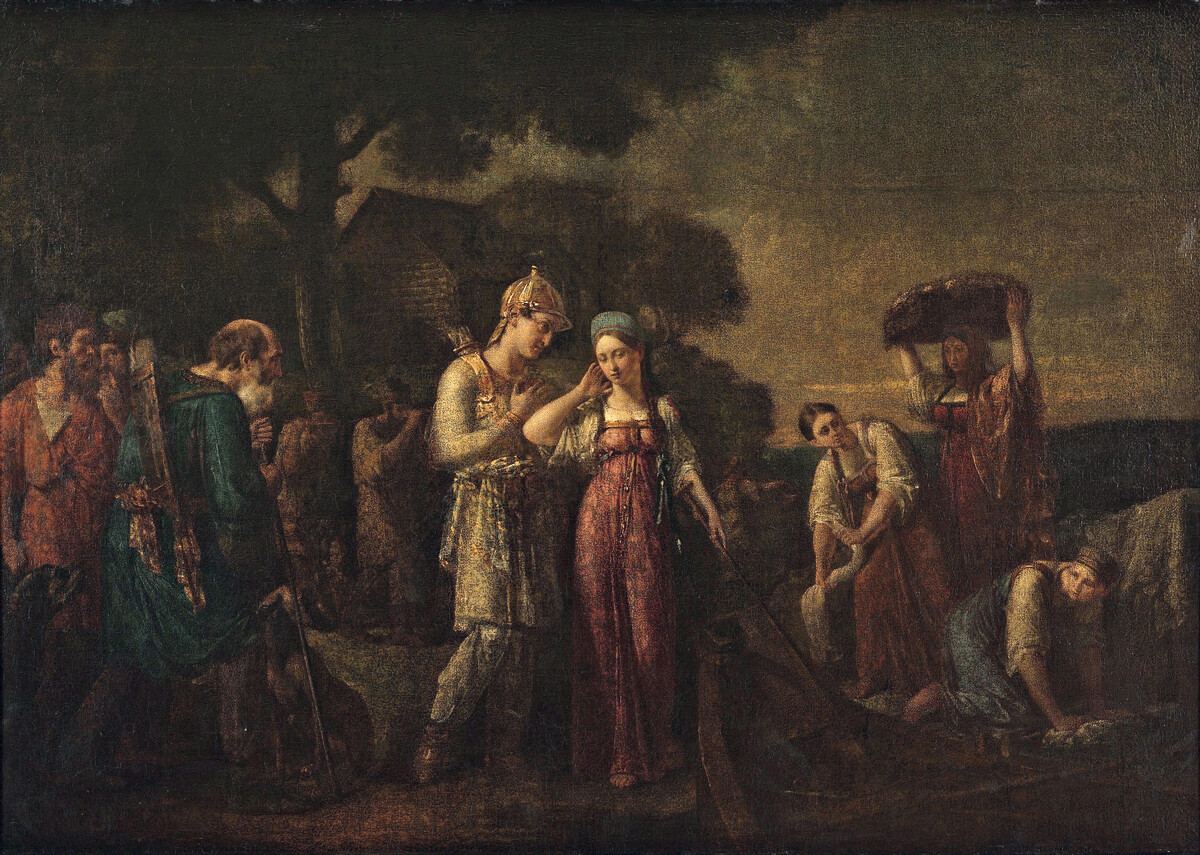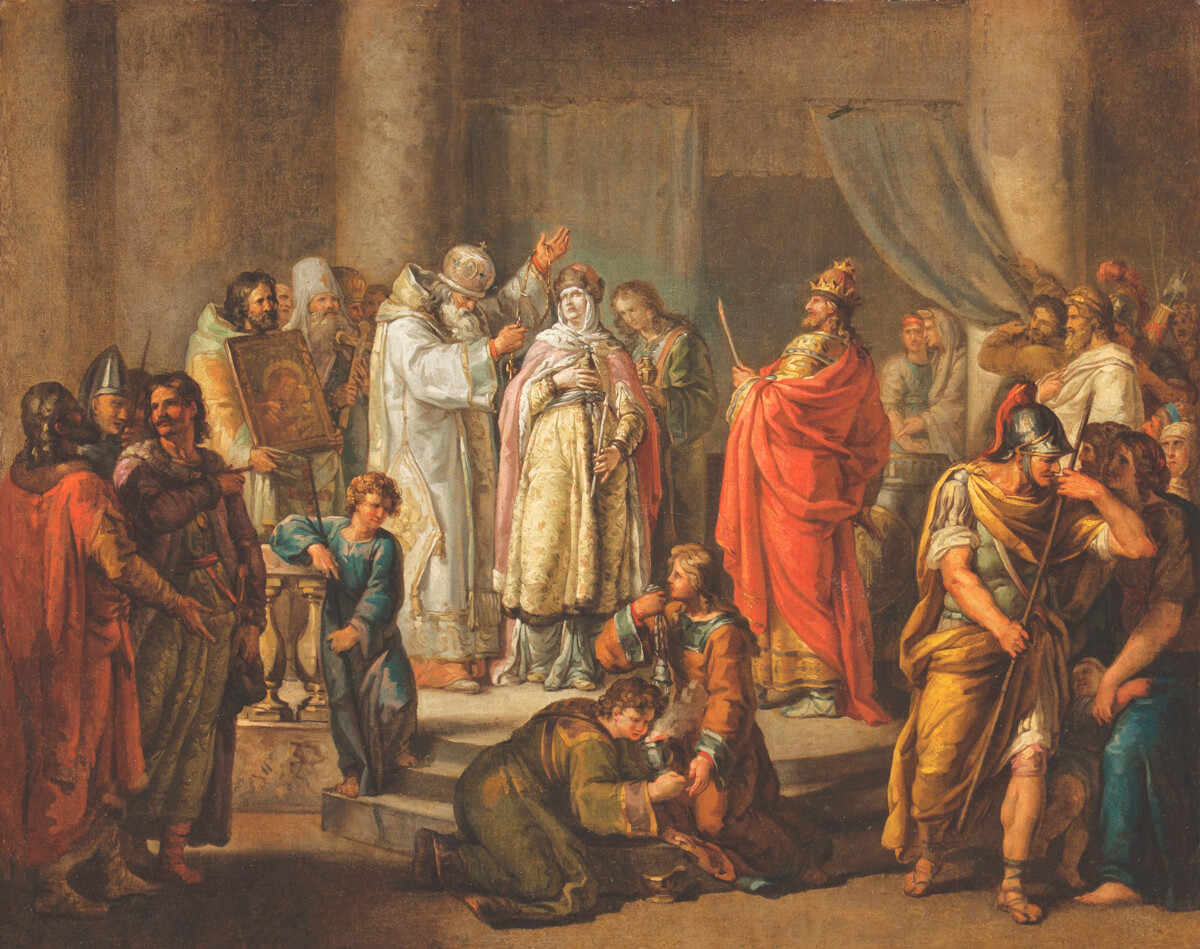
The first woman recognized to be a saint in Rus’ was initially a pagan, shooting to fame following her brutal revenge for her husband’s death. Yet, later, she brought Christianity to the Russian lands and raised her grandson Prince Vladimir, who, consequently, baptized the whole country.

Saint Olga, Princess of Kiev.
Fine Art Images/ Heritage Images /Getty ImagesOlga appeared on the historical scene after the death of her husband, Prince Igor of Kiev, in 945, according to the Russian chronicle ‘The tale of bygone years’ (the Rus’ Primary Chronicle). He was brutally murdered when he was collecting tax from the Drevlian tribes, who were subordinate to Kiev. He was tied up to two bent aspens and, as they straightened up, he was torn into two halves.
Having done away with the Kiev prince, the Drevlians decided they could also lay their hands on his throne. To do it, they intended to marry their prince Mal to Igor’s young widow and sent matchmakers to her.

Olga`s first revenge on Drevlians by Fyodor Bruni, 1839.
Public DomainDespite such a sophisticated revenge, Olga was by far not a freaky whip-cracker. Such a crackdown on the Drevlians in those violent pagan times served as a visual demonstration that there was no way one could seize the Kievan throne that had lost its ruling prince. Besides, such actions also granted her support within the country: both her guards and the local nobility woke up to the fact that she was a decisive and politically mature ruler.
Olga also visited the lands under Kiev’s rule and set up so-called ‘pogosti i uroki’ there, namely the exact amount of tax due to be paid and the administrative centers where it was supposed to be collected. She understood that her husband had died, to a great extent, due to the fact that the amount of tax and the rules on how it should be collected had never been determined. From Olga’s time onward, the ruler’s representatives were not only in charge of collecting tax, but they also monitored it, resolved court cases, while the prince didn’t have to collect tax himself. In fact, Olga managed to set up the first administrative structure, which enabled the ruler to get tax and relevant information through their subordinates without having to leave the capital.
Thus, as early as in her youth, Olga earned the nickname of “the wisest of all”. This characteristic is also supported in a legend telling about her origin and the way she met Prince Igor. While hunting near Pskov, Igor asked a ferryman to take him across the river, but, already in a boat, he saw that it was a young, beautiful girl. According to the customs of those times, he was certain that a commoner would hardly be against the prince’s attention, but the girl decisively pushed back, promising, according to one legend, to drown herself in the river or throw the prince there, as another one has it. The prince was so impressed by her beauty, character and common sense, that as soon as he decided to get married, he ordered to find that very Olga.

The first meeting of prince Igor with Olga by Vasily Sazonov, 1824.
State Tretyakov Gallery / Public domainOlga’s wisdom also consisted in the fact that she was no longer satisfied with her people’s pagan beliefs. She increasingly took note of Christians, whose number was on the rise in Kiev. Historians don’t have a unified approach as to what made Olga take action - her personal affinity for Christianity or political interests and understanding that a more “advanced” faith was needed for the country’s development. Whatever the case, Olga made up her mind to adopt Christianity and, with this in mind, she set out for the Byzantine capital Constantinople.
A wealth of legends center on Olga’s trip, much like on her entire rule. One of them has it, that Emperor Constantine Bagryanorodny, who later became Olga’s godfather, attempted to propose to her, but Olga masterly evaded this marriage.
After she came back to Kiev, she became the first Christian in Rus’ (at least of noble descent). Her example had no effect on her son Svyatoslav, who stayed pagan until his very death. However, Olga’s grandson Vladimir, who had been brought up by the princess, according to a legend, was not only baptized himself, but christened the entire Rus’. Also, after Olga’s return, Kiev saw Christian churches being built (Olga is believed to be a pioneer of stone construction in Rus’), services being held, with their own priests appearing in the city. Christianity was no longer seen by the residents as something weird or alien, with people increasingly getting baptized.

The Baptism of Olga by Ivan Akimov, 1792.
Public domainOlga died in the year 969 and started to be revered as a saint between 972 and 978. She was canonized as the first Christian in Rus’ and “the wisest of all people”. Her pagan revenge on the Drevlians didn’t count, as it had happened in her “previous” life - prior to her baptism. Her biography states: “Princess Olga ruled the Russian lands she was in charge of not like a woman, but like a strong and sensible man.” The reverence for Olga was so deep, that in 1547, she was recognized not merely as a saint, but equal-to-the-Apostles. There are only five such women around the world, including Mary Magdalene, among others.
Dear readers,
Our website and social media accounts are under threat of being restricted or banned, due to the current circumstances. So, to keep up with our latest content, simply do the following:
If using any of Russia Beyond's content, partly or in full, always provide an active hyperlink to the original material.
Subscribe
to our newsletter!
Get the week's best stories straight to your inbox